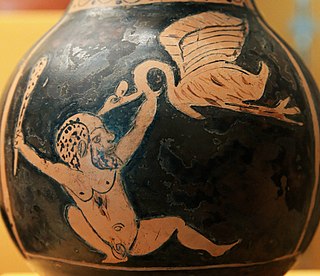This page is based on this
Wikipedia article Text is available under the
CC BY-SA 4.0 license; additional terms may apply.
Images, videos and audio are available under their respective licenses.

Congo may refer to either of two countries that border the Congo River in central Africa:
In linguistics, a collective noun refers to a collection of things taken as a whole. Most collective nouns in everyday speech are mundane and not specific to just one kind, such as the word "group", which is applied to "people" in phrase "a group of people", but is also applied to "dogs" in the phrase "a group of dogs". Some collective nouns are specific to one kind, especially terms of venery, which identify specific groups of animals. For example, "pride" as a term of venery always refers to lions, never to dogs or cows. Other specific examples come from popular culture such as a group of owls, which is called a "parliament".
Chimera, chimaera, or chimaira may refer to:
In linguistics, grammatical gender is a specific form of noun class system in which the division of noun classes forms an agreement system with another aspect of the language, such as adjectives, articles, pronouns, or verbs. This system is used in approximately one quarter of the world's languages. In these languages, most or all nouns inherently carry one value of the grammatical category called gender; the values present in a given language are called the genders of that language. According to one definition: "Genders are classes of nouns reflected in the behaviour of associated words."

English nouns are inflected for grammatical number, meaning that if they are of the countable type, they generally have different forms for singular and plural. This article discusses the variety of ways in which English plural nouns are formed from the corresponding singular forms, as well as various issues concerning the usage of singulars and plurals in English. For plurals of pronouns, see English personal pronouns.
The Myrmidons were an ancient nation of Greek mythology. In Homer's Iliad, the Myrmidons are the soldiers commanded by Achilles. Their eponymous ancestor was Myrmidon, a king of Phthiotis who was a son of Zeus and "wide-ruling" Eurymedousa, a princess of Phthiotis. She was seduced by him in the form of an ant. An etiological myth of their origins, simply expanding upon their supposed etymology— the name in Classical Greek was interpreted as "ant-people", from murmekes, "ants"— was first mentioned by Ovid, in Metamorphoses: in Ovid's telling, the Myrmidons were simple worker ants on the island of Aegina.

Chinese mythology is mythology that has been passed down in oral form or recorded in literature in the geographic area now known as "China". Chinese mythology includes many varied myths from regional and cultural traditions. Chinese mythology is far from monolithic, not being an integrated system, even among just Han people. Chinese mythology is encountered in the traditions of various classes of people, geographic regions, historical periods including the present, and from various ethnic groups. China is the home of many mythological traditions, including that of Han Chinese and their Huaxia predecessors, as well as Tibetan mythology, Turkic mythology, Korean mythology, and many others. However, the study of Chinese mythology tends to focus upon material in Chinese language.
Mbuti (Bambuti) mythology is the mythology of the African Mbuti Pygmies of Congo.

In anthropology, pygmy peoples are ethnic groups whose average height is unusually short. The term pygmyism is used to describe the phenotype of endemic short stature for populations in which adult men are on average less than 150 cm tall.

In ancient Greek religion, Ananke, is a personification of inevitability, compulsion and necessity. She was often depicted as holding a spindle. One of the Greek primordial deities, the birth of Ananke marked the beginning of the cosmos, along with that of her brother and consort, Chronos. Ananke was considered as the most powerful dictator of fate and circumstance; mortals as well as gods respected her and paid homage. Some times considered the mother of the Fates, she was thought to be the only being to have control over their decisions. According to Schowalter and Friesen, she and the Fates "are all sufficiently tied to early Greek mythology to make their Greek origins likely."
Enchantress most commonly refers to:

Arcadia refers to a vision of pastoralism and harmony with nature. The term is derived from the Greek province of the same name which dates to antiquity; the province's mountainous topography and sparse population of pastoralists later caused the word Arcadia to develop into a poetic byword for an idyllic vision of unspoiled wilderness. Arcadia is a poetic shaped space associated with bountiful natural splendor and harmony. The 'Garden' is often inhabited by shepherds. The concept also figures in Renaissance mythology. Although commonly thought of as being in line with Utopian ideals, Arcadia differs from that tradition in that it is more often specifically regarded as unattainable. Furthermore, it is seen as a lost, Edenic form of life, contrasting to the progressive nature of Utopian desires.
Dwarf or dwarves may refer to:

Orang-Outang, sive Homo Sylvestris: or, the Anatomy of a Pygmie Compared with that of a Monkey, an Ape, and a Man (1699) is a book by the British scientist Edward Tyson. Regarded as a seminal work on anatomy, this volume led to Tyson being known as the father of comparative anatomy. The book characterizes in detail the anatomy of a creature described as a pygmy and contains Tyson's views on the phylogeny of the pygmy and its relationship to humans, apes, and monkeys.








